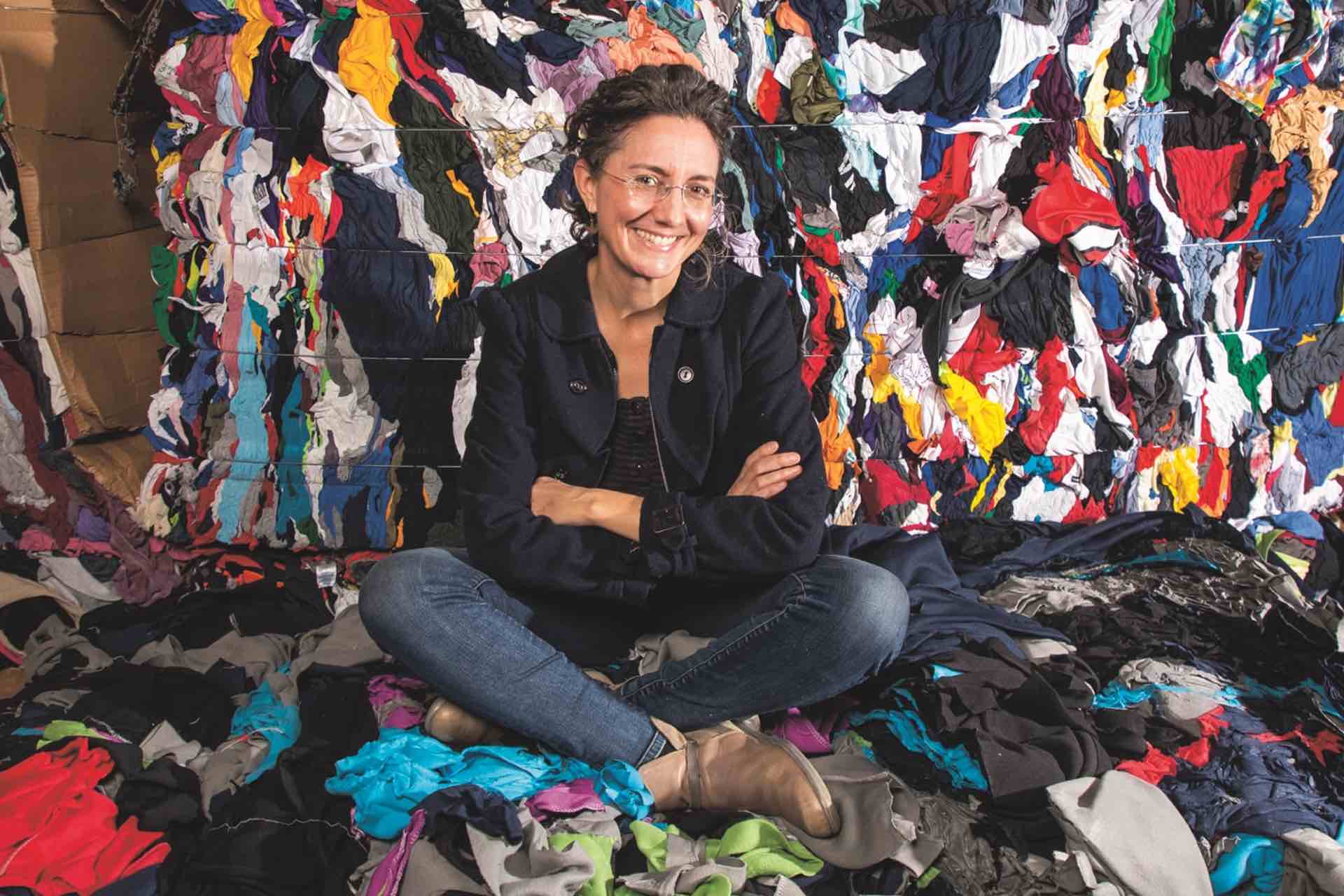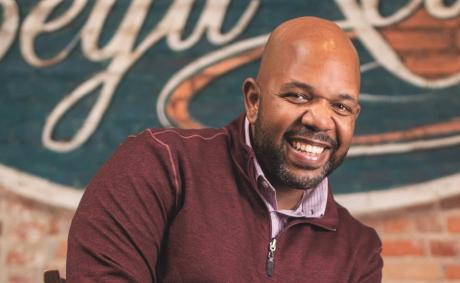While some people saw only despair in the shuttered factories of Morganton, North Carolina – abandoned by corporations that had moved production overseas – Molly Hemstreet ’99 had a vision for her hometown: She saw hope. As a child there, Hemstreet was touched by the tremendous work ethic of her neighbors. As a teacher, she saw potential in children and their parents. And from organizing economic development she saw a better way to do business. The traditional model – aggressively recruiting companies, only to see them leave chasing cheap labor – had failed small towns in western North Carolina too many times.
In 2008, Hemstreet founded Opportunity Threads in Morganton. The company now is the largest worker-owned, cut-and-sew apparel manufacturing facility in the United States. Despite a shaky start during the economic downturn of that time, the plant was successful so quickly that in 2013 Hemstreet co-founded the Carolina Textile District, a network of worker-owned mills that sustainably produce goods. Two years later, she co-founded the Industrial Commons, a nonprofit dedicated to teaching democratic workplace principles and worker-ownership.
“I think rural people need to be problem solvers,” Hemstreet said. “We need to create a sense of self-reliance collectively.”
Hemstreet’s path to manufacturing was unusual: Latin American studies degree, public school teaching, and community organizing. No MBA, no finance background, no years as a middle manager – and no manufacturing experience at all. Just faith in her hometown and its people, along with recognition of a great opportunity, and an abiding commitment to see her project through.
Hemstreet credits the seeds of her unusual career path to Anne Hodges-Copple, the Episcopal campus minister at Duke during Hemstreet’s student days (and now a recently retired bishop). The two became close at Duke, participating in protests and other activism while advocating human rights. They went to Honduras to work for nonprofits, where Hemstreet became interested in microfinancing and community development. She added similar experience during a Duke program in the Andes of South America.
Everywhere Hemstreet visited that had extreme poverty and low resources, she noticed people innovating ways to survive. When she returned to Morganton after graduation, the economic situation felt similar, right down to a sizable population of Maya immigrants from Guatemala.
“When I came home, it felt like I was in a community that was ready,” she said. “When you have 17 percent unemployment, that’s where my ideas shifted from education to economic development. So how do you build a really innovative business in a traditional business structure, but one that’s leading the new green economy? How do you take a bunch of workers who have never seen themselves as managers and help them to run their own plant?”
Slowly. Opportunity Threads managers Walter Vicente and Maricela Lopez Solis have been with the company for more than a decade. When they first arrived, after years of working at traditional employers, it took them a while to adjust to having a voice.
“The environment that we created here is that everyone is respected,” Vicente said. “We treat people fairly. It’s unique.”
Solis said that her nickname for Hemstreet is “Robin Hood,” because she gives opportunities to the poor and immigrants, especially Latinos. “She has a lot of humility in her heart,” Solis said. “In Guatemala, our life is really tough. To have a life like this is a big change, and we try to pass that on.”
Hemstreet got good advice from local mentors along the way. Alan Wood, president and CEO of Burke Development Inc., serves on the board of the Industrial Commons and sees Hemstreet’s worker-owned model as the future.
“I think it can work anywhere,” Wood said. “We’re seeing a fundamental shift in our labor force from a state of plenty to a state of workers being more and more in demand. Companies need to value their employees as an asset rather than a commodity.”
Today, Hemstreet has relinquished her role at Opportunity Threads to co-lead the Industrial Commons. That often means hosting guests who want to see the Morganton model in action. The next step is figuring out how much of that model is replicable elsewhere, and formalizing a way to teach it broadly.
“You can be from a place, you can go out and gain knowledge and perspective, but then you can come back and deeply be transformative,” Hemstreet said. “How can we change the fabric of our community over time?”





